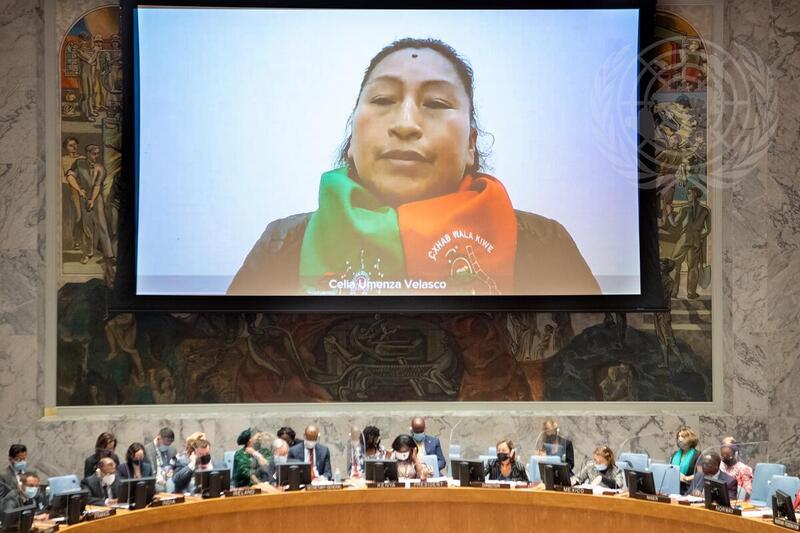Analysis: 2021 Security Council Open Debate on WPS
UN7915028_10-21-21_ED_4080_.jpg

On 21 October 2021, led by the Kenyan presidency, the UN Security Council (UNSC) held its annual Open Debate on Women, Peace and Security under the theme “Investing in Women in Peacekeeping and Peacebuilding”. Celia Umenza Velasco, member of Cxhab Wala Kiwe, Association of Councils of the North of Cauca, spoke as the civil society briefer on behalf of the NGO Working Group on Women, Peace and Security. She briefed the Council about the rising violence against human rights and land defenders in Colombia, including against Indigenous leaders who are targeted for challenging powerful economic interests and opposing damaging extractive and infrastructure projects on their territories.
Recognizing militarization as a barrier to women’s rights and peace
Last year, WILPF’s global report on 20 years of WPS implementation found that the agenda has suffered from a gap between commitments and action due to a variety of factors, including a lack of accountability for implementation and rising militarization. Militarization is a fundamental barrier to peace that directly contradicts the WPS agenda and undermines conflict prevention and the durability of peace after violence has reduced.
The 2021 report of the Secretary-General on Women and Peace and Security reflected these WILPF findings, and called for reducing military expenditure as a priority for WPS implementation. The report highlighted that “curbing military spending...is especially resonant in the current moment, when people’s lives and security are threatened by disease, forced displacement, hunger, racism, violent misogyny and the climate crisis.” Secretary-General António Guterres and Executive Director of UN Women Sima Sami Bahous focused portions of their briefings on the harms and tradeoffs resulting from rising militarization. Secretary-General Guterres highlighted that these issues are not separate from, but integral to WPS, stating that “conflict prevention and disarmament are at the very heart of movements that have been led by women for over a century for peace”. As in past open debates on WPS, most states, however, did not engage substantively with these issues, reflecting an ongoing gap in member state attention to root causes and some of the structural barriers to implementation.
Our analysis of the 2021 debate
WILPF's analysis of this year's debate comments on themes, such as militarization and conflict prevention, that we assess as being critical for the holistic implementation of the WPS agenda. In our article, you can read more about some of the themes that came up in this year's debate, as well as our commentary on mechanisms to ensure women's participation, the prevention pillar, incorporating WPS into country action at the UNSC, and national-level implementation and financing.
